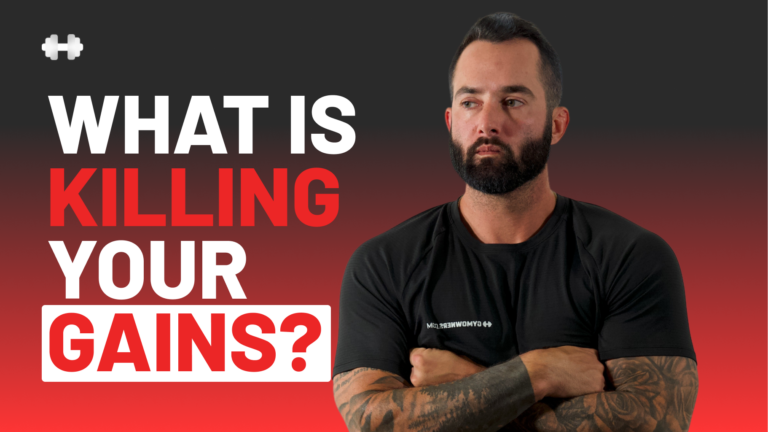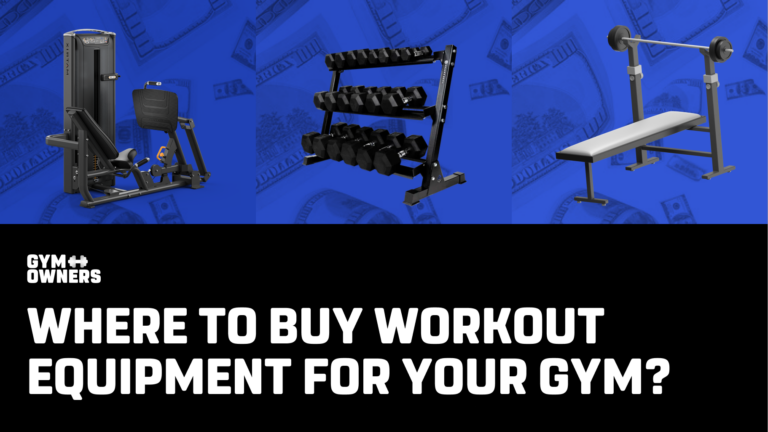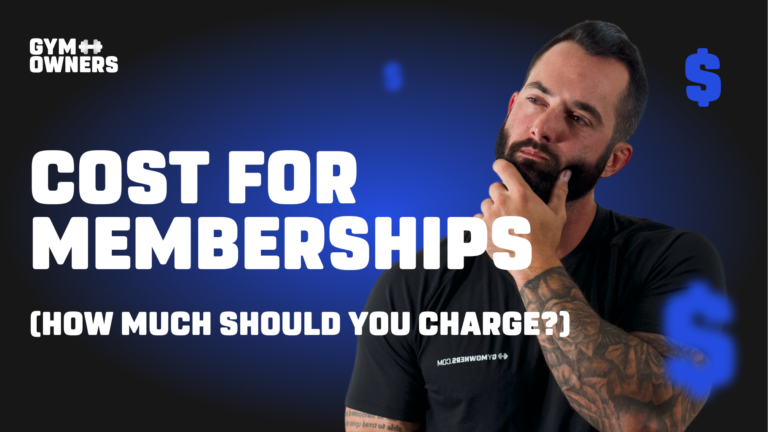What Could Be Killing Your Gains? 5 Reasons Your Muscles Aren’t Growing
For the most part, most people understand weight loss is simple. You eat less calories, you move more, you lose weight, and you see it quickly on the scale and how your clothes fit.
Building muscle however, is more nuanced. It’s a slow process, with more ways to go wrong. So how do you ensure that you’re keeping your body in an anabolic state? We’re breaking down why your progress may have stalled and how to get back to making serious gains.
#1 PROTEIN INTAKE
Protein is the building blocks of muscle. Without consuming enough protein, your muscles will not have the materials needed to increase the size of your muscles.
Think of it like building a house. You’re tearing down the existing frame, and using new materials to build the house back, bigger and better. Now imagine if you did all the work to demo the house, you go to build the new frame, and you realize you don’t have enough wood, or hardware to build.
The same goes for your muscles. If you’re consistently in the gym lifting and breaking down your muscle fibers, you need to be consuming enough protein to rebuild. So how do you know if you’re getting enough?
To build muscle, there’s a simple formula to follow for protein consumption. 0.5 to 1 gram of protein per pound of bodyweight each day is what you should be aiming for.
So let’s say you weigh 175 lbs, you would want to aim for 88 to 175 grams of protein per day. To be sure you’re getting enough it’s always best to aim towards the higher range, especially if your progress has stalled.
#2 OVERALL CALORIC INTAKE
Similarly to the house analogy used before, overall calories also matter when building muscle. If you are in a calorie deficit (eating fewer calories than you burn in a day), your body will not be prioritizing muscle gain. Rather, you should be in a caloric surplus or maintenance.
To calculate your daily caloric needs, there are formulas and calculators on the internet that do a great job of finding your average caloric needs. Our favorite is the TDEE calculator as it takes into account your training experience as well as daily activity levels.
#3 PROGRESSIVE OVERLOAD
On the training side of things, progressive overload is the most important part of gaining muscle. According to NASM, “The Principle of Progression states that increases in time, weight or intensity should be kept within 10% or less each week to allow for a gradual adaptation while minimizing risk of injury.
Without this progressive overloading, muscle growth will plateau”. Simply put, in order to grow your muscles you need to be increasing the weight you lift, or the volume of lifting by no more than 10% each week.
#4 ALCOHOL CONSUMPTION
Unfortunately, studies do show that consuming alcohol has a negative effect on muscle protein synthesis. So, if you’re practicing progressive overload and hitting your calorie/protein intake targets, and still not seeing results– it’s a good idea to take a look at your alcohol habits.
In addition to its negative effects on muscle protein synthesis, if you are allocating at least 150 calories per drink to alcohol, you’re increasing your daily calorie intake which will lead to an excess of calories consumed, or too few grams of protein. So how much alcohol is ok to consume while trying to build muscle?
According to NASM, “Ideally, consuming 0.5-1g/kg of alcohol now and then won’t reverse all your hard work in the gym. However, as that number increases to 1.5 or even 2g/kg some serious negative impacts are observed”.
Some good news for women, according to studies, alcohol has less of a negative impact on women’s muscle gain than men. Sorry fellas.
#5 SLEEP
Another factor that could be negatively impacting your gains is your quality of sleep. While sleeping is when our bodies release Human Growth Hormone, or HGH. To ensure you are getting the maximum HGH release, it’s ideal to get 7-9 hours of sleep.
If you struggle to get this amount of sleep, take a look at your sleep hygiene. Ideal sleeping conditions include: no light in the room, avoid caffeine alcohol and large meals before bedtime, keep the room you sleep in cool, create a bedtime routine that does not include screens (try meditation, journaling, etc).
BEFORE YOU GO…
We hope you found value in today’s blog. If you enjoy this content subscribe to our weekly newsletter, and follow us on Instagram for more!






